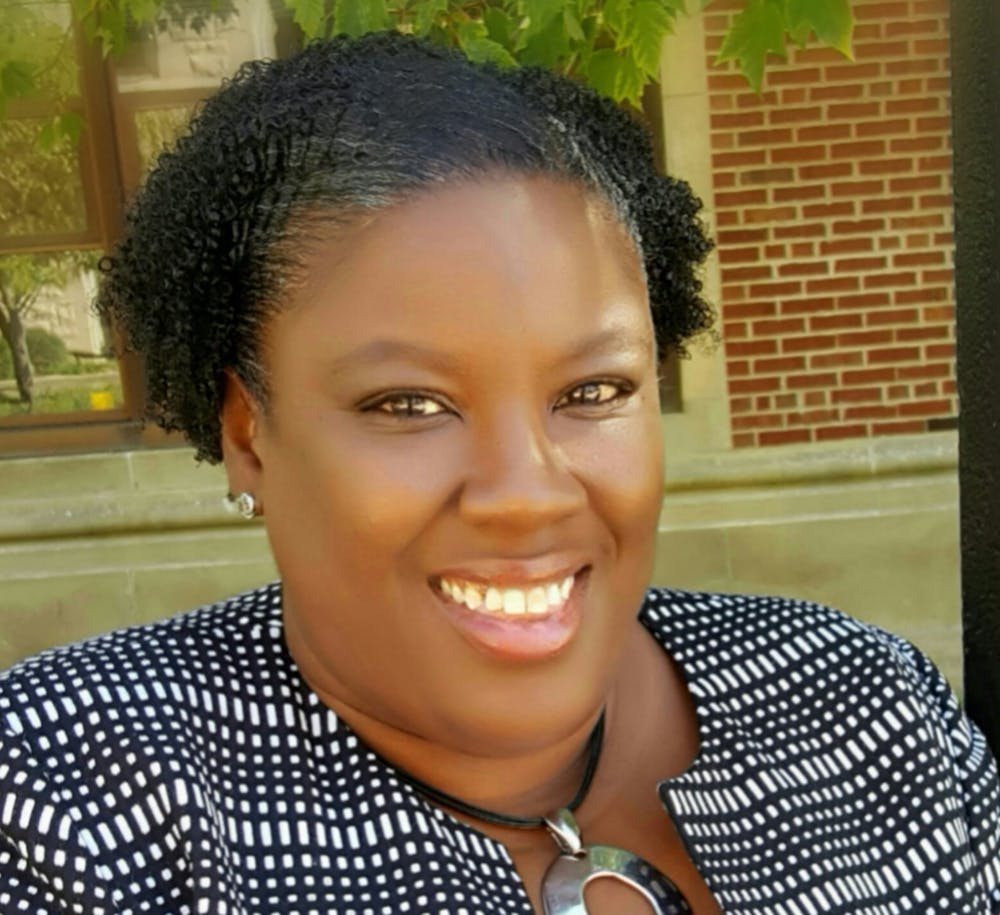Katrina Caldwell began her role as the new chief diversity officer (CDO) and vice provost for diversity and inclusion on July 1. Caldwell hopes to embrace the diverse perspectives at Hopkins to foster a more inclusive environment.
Before coming to Hopkins, Caldwell was the vice chancellor for diversity and community engagement at the University of Mississippi. With almost 30 years of experience, Caldwell expressed that she is looking forward to guiding Hopkins to be a leader in the conversations surrounding diversity, inclusion and equity.
After receiving her Bachelor’s degree in English literature from Spelman College, Caldwell pursued her Master’s and PhD in English Literature from the University of Illinois. As a first-generation student herself, Caldwell noticed the financial and cultural struggles First-Generation, Limited-Income students face. Wanting to do more for these communities, she shifted her career towards multicultural student affairs.
“My first introduction to working with under-represented students was the summer that I taught English Composition to students who, like me, were first generation college students,” Caldwell wrote in an email to The News-Letter. “Listening to their stories about the fears, anxieties and their resiliency, I realized that working with these students in some fashion was what I wanted to do.”
Regarding the Black Lives Matter movement, Caldwell stated that as CDO she has a responsibility to help dismantle the systems at Hopkins that contribute to inequality.
“I navigate the pain, anger, and frustration that lives had to be lost for some folks to see the inequities inherent in many of the institutions and structures in this country,” she wrote. “But, I am hopeful that we can capitalize on this moment — that people will not un-see, un-hear, and un-learn the devastating by-products of this reality long enough for real change to occur.”
Jevon Campbell, treasurer of the Men of Color Hopkins Alliance, is currently interning at the Office of Multicultural Affairs (OMA) in the Center for Diversity & Inclusion (D&I). In an email to The News-Letter, he shared that he wanted to work for OMA because he sees it as a safe place on campus.
“Everything they do — from the awesome Heritage 365 Guest Speakers they bring in to the OMACares programming, which provides free food and study spaces for students during finals period — does wonders for the JHU community,” Campbell wrote.
Campbell hopes that Caldwell will help the University hire and retain more staff of color. He also expressed concern over the D&I funding, explaining that the offices need resources to preserve and develop mental health programs for people of color to process the recent racial issues.
“I really hope no funding is taken away from the Center for Diversity and Inclusion, especially after JHU’s lackluster responses to the issues of police brutality in this country,” Campbell wrote. “I wish JHU would abandon its plans for a private police force and shift more resources towards the D&I offices. Students, in this climate, are going to need support from them more than ever.”
Peggy-Ita Obeng-Nyarkoh, research, history and education chair of the Black Student Union (BSU), agreed with Campbell, explaining that the D&I offices play a large role in helping students cope with social issues. However, she feels that the University places too much of a burden on the D&I offices to deal with these issues, as opposed to holding the University accountable.
“When the recent wave of protests started on May 26, it took Hopkins way too long to release a statement, and when they did, it was subpar at best,” Obeng-Nyarkoh wrote. “Although the community circle that followed was cathartic and helpful for students, the onus of planning and executing it was placed on OMA and D&I, and President Daniels wasn't even there.”
Likewise, Rahwa Yehdego, vice president of BSU, shared that her experiences with the D&I offices have been both helpful and positive. Her aim this year is for BSU to collaborate with Caldwell to find ways for the student body and the administration to make actionable change to achieve diversity on campus.
“Diversity and inclusion has to branch outside and into the larger scheme of campus life,” Yehdego wrote in an email to The News-Letter. “Our diversity statistics may increase each year, but that doesn’t translate to feeling like the university truly appreciates and embraces diversity.”
Caldwell explained that currently, her main focus is to connect with the student body and to listen to their voices so she can best address concerns.
“I do not want to assume that what works at other institutions will work here, so I want to hear from as many students and student groups as possible,” Caldwell wrote. “My goal in this new position during my first few months is to learn everything that I can about D&I at Hopkins.”





